National Zoo Keeper Week
It’s National Zoo Keeper Appreciation Week and we’re celebrating the amazing work our zookeepers do for wildlife every day. They are the dedicated keepers, teachers, and caretakers of the animals here at the zoo. They are also some of the most Passionate hardworking people you’ll meet. The Maryland Zoo is fortunate to have expert teams of animal professionals focused on the care of more than 200 species big and small. We’re so grateful for their knowledge, expertise, and commitment which continues to advance animal husbandry and wildlife conservation here and around the globe.
This year, National Zoo Keeper Week is July 16-22. Each day we’ll share new keeper profiles and introduce you to the people making a difference for animals at the Maryland Zoo.
Meet Robin S.
What area of the zoo do you work in and with what animals do you work?
Giraffe House Team, working primarily with cheetah, porcupine, giraffe, and okapi; I also work with the antelope, lions, birds, and farm animals.
How long have you been working at the zoo?
3 years
Why did you choose to work at the zoo?
I have been working with animals for ten years, and have worked at other zoos prior to Maryland. Previously I worked with species from Australia, North, and South America, and always wanted to work with African wildlife — especially cheetahs! It was a perfect fit.
What is a typical work day like at the zoo?
We wear many hats — chef, nurse, nanny — overall we’re caretakers for the animals we work with every day. There’s cleaning, feeding, and seemingly endless amounts of paperwork. But there is also a lot of fun stuff! I train the saddle billed stork, demoiselle crane, addra gazelle, and cheetah, which can be a lot to balance but it’s for their benefit and ours. The animals definitely enjoy the sessions as much as I do. I also interact with the public daily, from keeper chats to animal feeds. It’s always rewarding to inspire our guests to partake in conservation action through connections with the zoo’s animals.
Is it hard to work at the zoo and why?
It’s extremely hard. As keepers, we’re constant problem solvers. We have to learn as many different “languages.” The species we work with all behave differently and therefore we have to “speak” differently. Not to mention, no matter how routine our days are, no two are ever the same. We work holidays, weekends, and in all kinds of weather, which even after ten years means missed time with friends and family but in the end, it’s always worth it.
When did you first start thinking about working in a zoo?
My fifth-grade year book says zoologist — I made up my mind pretty early on.
What steps did you take in order to become a keeper at the zoo?
I have a B.S. in wildlife and fisheries science and a minor in biology, an internship, three years of volunteering at a wildlife refuge and a rehab center, to summers as a seasonal keeper, and a lot of networking. This field is about the experience and the valuable connections that you make.
What type of person or what skills make for a good keeper?
Dedicated! This isn’t a career that you get into for the money or the glory. It’s dirty and exhausting (mentally and physically), but endlessly educational. I’ve never met another keeper or animal who didn’t teach me something new. The field has changed a lot in the past ten years and is constantly evolving, so we have to keep up by staying on top of the latest husbandry skills and animal facts.
What was your favorite subject in school and why?
I love capturing the world around me, even if it’s just my dog doing something silly. I’ve always paid close attention to detail, and photography lets me do just that.
What hobbies/interests do you have outside of your zoo life?
I love to travel! Every vacation I take it to somewhere new, whether it’s to another state to visit a friend or around the world for my Master’s degree. I love experiencing unique cultures and trying new foods – I grew up in New York so even Old Bay is new to me!
Have you done any unique conservation, research, or professional development experiences related to your work at the zoo?
I really enjoy working with carnivores, so a lot of my professional experiences have focused on that. I took a carnivore workshop at the 2016 American Association of Zoo Keepers Conference where I learned about the ins and outs of carnivore care and natural history. Last month I took a graduate trip to Namibia and studied at the Cheetah Conservation Fund, where I got to immerse myself in community-based conservation, human-wildlife conflict prevention, and predator conservation.
What do you think is an important reason to support the zoo?
Zoos and aquariums reach more people than any other tourism venue worldwide. I love that I have the opportunity to share species from around the global right here in Baltimore, that most people would never have the opportunity to see in the wild (like the okapi!). If I can help one guest learn a single fact about an animal I care for, it’s a win for the conservation of that species. There are so many threats to wildlife and wild places today that no effort is too small. I love that zoos empower people to save the world however they can.

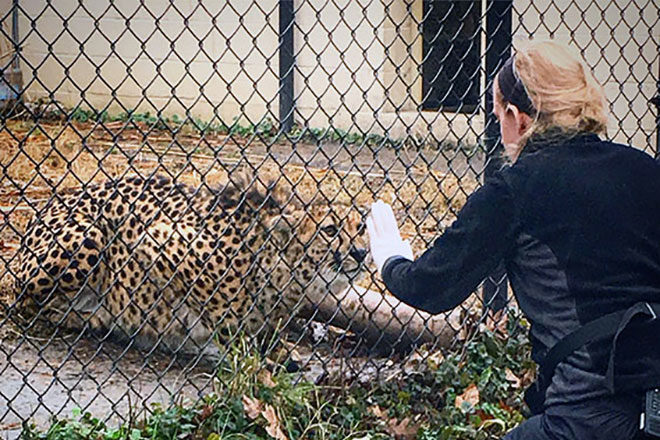
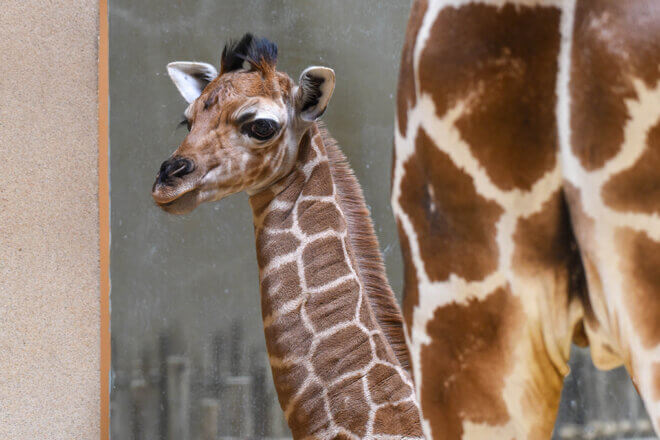
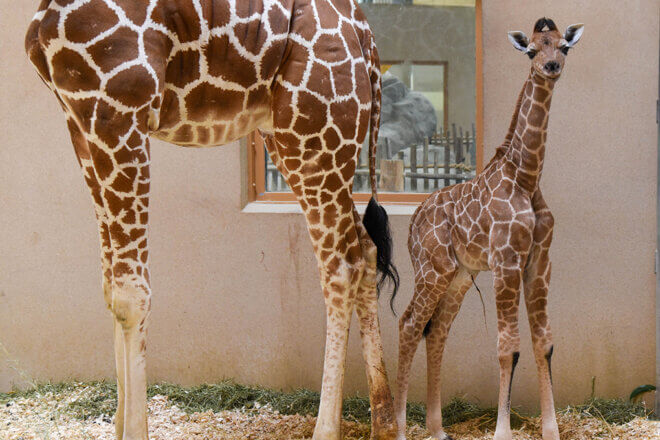
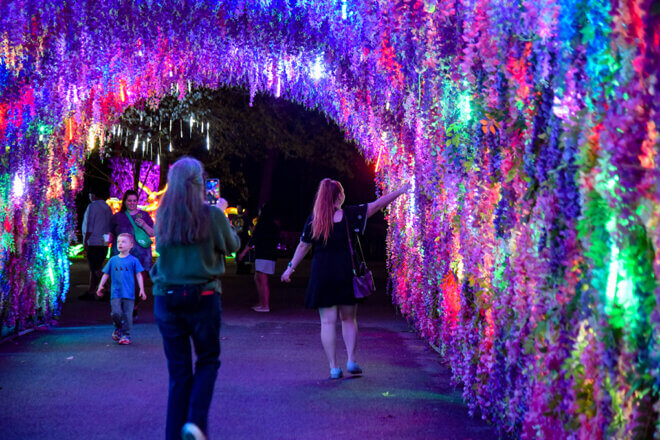
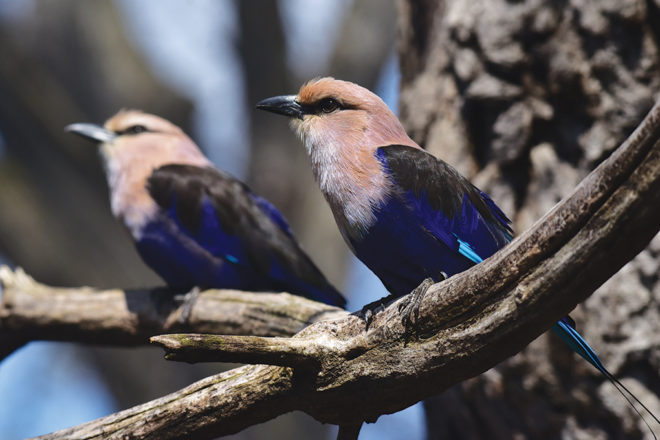
Share this article